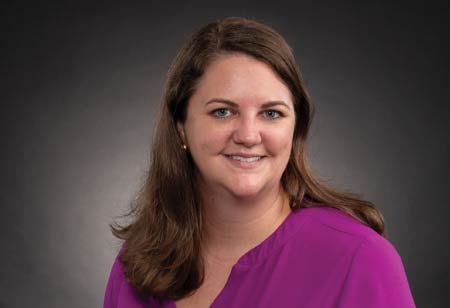Thank you for Subscribing to Healthcare Business Review Weekly Brief

Thinking Outside the Box for Hazardous Drug Management
Healthcare Business Review
With the release of the United States Pharmacopeial Chapter 800 (USP 800), standards for handling hazardous drugs became guidelines and not just guidance documents from different organizations. A unique element for healthcare is that USP 800 goes beyond the ‘box’ of pharmacy and impacts the receiving department, nursing and providers, custodial staff, and waste disposal staff. Instead of working in silos for each area to manage their own part in the medication use process for hazardous drugs, USP 800 encourages healthcare teams to collaborate to ensure that all aspects of drug handling meet the standards.
Healthcare teams that saw USP 800 as an opportunity to instill protections for their healthcare team members have used this standard to improve facilities and equipment, increase closed system transfer device access and use, and expand training for team members. Facilities that only saw USP 800 as an additional burden and have only attempted to meet the minimum standard have missed the overarching theme that we must protect our healthcare team members. Harm to our healthcare team members may not be immediately evident, but it is a documented issue that must be mitigated. Admittedly, there is a high cost related to hazardous drug management practices in supplies and facilities, but they are important.
For these reasons, we must think beyond several parameters, or boxes, that we try to fit pharmacy practice. First, we must collaborate with other departments within our healthcare facilities, stores, or organizations to ensure that everyone who handles hazardous medications is aware and knows the steps to protect themselves through personal protective equipment (PPE), procedures, and equipment. Next, we need to leverage technology to help limit exposure to hazardous medications through closed-system transfer devices, automation, and robotic technology.
For pediatric oncology practices, technology and equipment are evolving to meet the needs of how medications are prepared and administered for very small doses. Finally, we need to think about the caregivers and family members who may be exposed to hazardous medications at home. This recommendation goes beyond USP 800, but it is a valid concern. It would be ideal to have more manufacturer-provided oral suspension formulations for patients of all ages unable to swallow tablets and capsules to remove the need for cutting and crushing hazardous medications at home. Education, counseling, and the tools to minimize exposure at home need to be part of the care we provide to patients.
Advocacy For Our Patients Is Something That Our Healthcare Teams Are Passionate About Doing. Advocacy For Our Healthcare Team Members Should Also Be Something That Instills Passion And Ongoing Work To Improve Hazardous Drug Management
Advocacy for our patients is something that our healthcare teams are passionate about doing. Advocacy for our healthcare team members should also be something that instills passion and ongoing work to improve hazardous drug management. Improvements in manufacturer-provided formulations, technology, and commitment to practices to minimize exposure to hazardous medications will play key roles in limiting unintended exposure.









